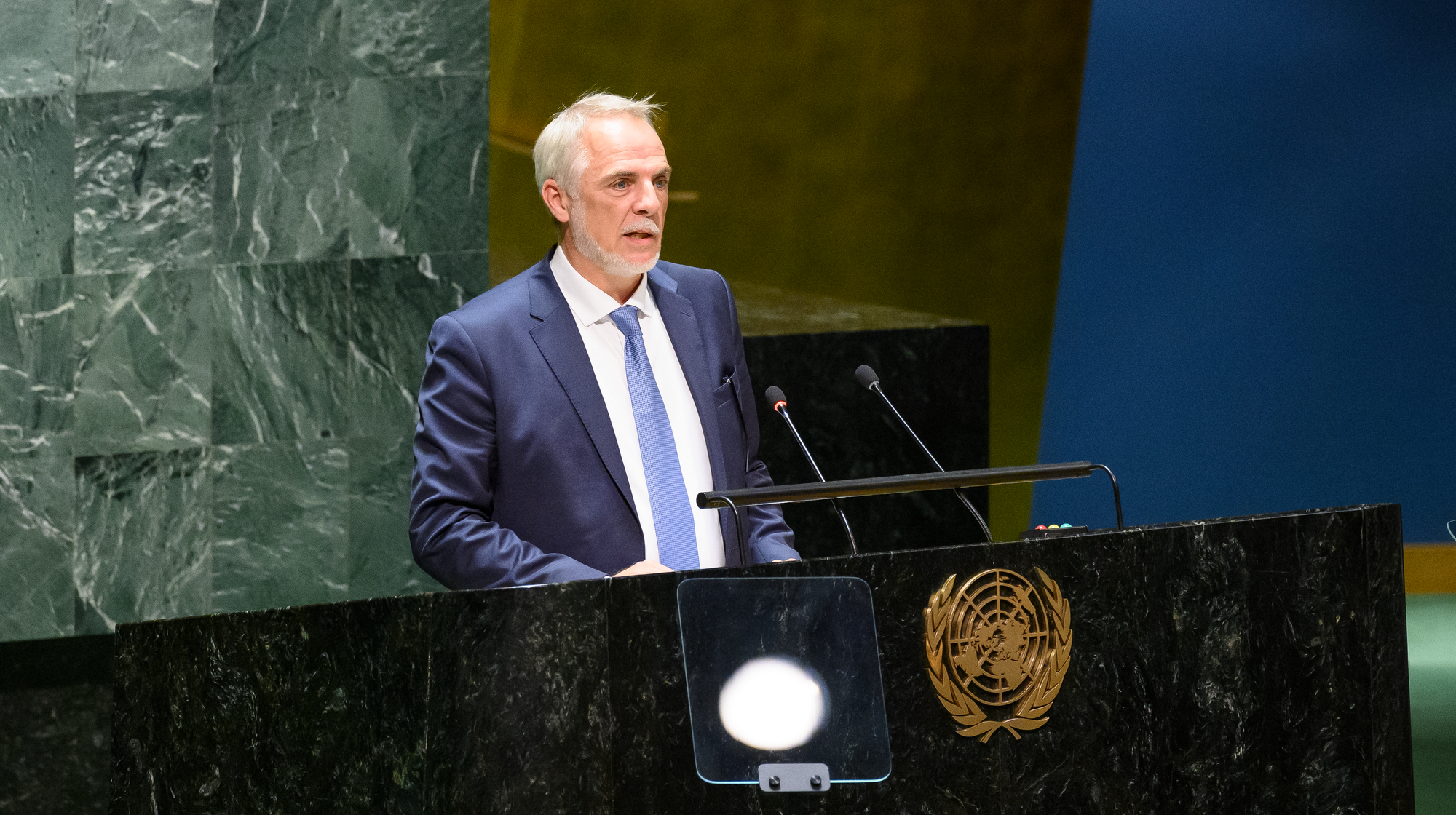November 21, 2022
Princeton University's Program on Science and Global Security (SGS) organized and together with the Princeton School of Public and International Affairs (SPIA) hosted on Tuesday, October 25, 2022, a public lecture by Amb. Alexander Kmentt, “Confronting the threat and use of nuclear weapons: The UN Treaty on the Prohibition of Nuclear Weapons - How it Was Achieved and Why it Matters.”
In the lecture (available here), Ambassador Kmentt explained why Russia’s nuclear threats against Ukraine and the West make it urgent to confront strategies based on the possession and use of nuclear weapons. He argued that since the new United Nations Treaty on the Prohibition of Nuclear Weapons bans such nuclear threats, it can offer humanity a path out of nuclear danger.
Amb. Alexander Kmentt served as President of the 1st Meeting of States Parties of the UN Treaty on the Prohibition of Nuclear Weapons, held in June 2022 in Vienna. An Austrian diplomat, he is one of the architects of the Treaty and was responsible for the Vienna Conferences on the Humanitarian Impact of Nuclear Weapons and the 138-country Humanitarian Pledge which led to the new treaty. He is Director of the Disarmament, Arms Control and Non-Proliferation Department of the Austrian Foreign Ministry. From 2016–2019, he served as Ambassador and Permanent Representative to the Political and Security Committee of the European Union. He is the author of the book The Treaty Prohibiting Nuclear Weapons: How it Was Achieved and Why it Matters (2020).
Amb. Kmentt was introduced by Ray Acheson, a visiting researcher at SGS and leader of the disarmament program Reaching Critical Will for the Women’s International League for Peace and Freedom. Ray serves on the International Steering Group of the International Campaign to Abolish Nuclear Weapons (ICAN), which won the 2017 Nobel Peace Prize for its work in achieving the Treaty on the Prohibition of Nuclear Weapons.
